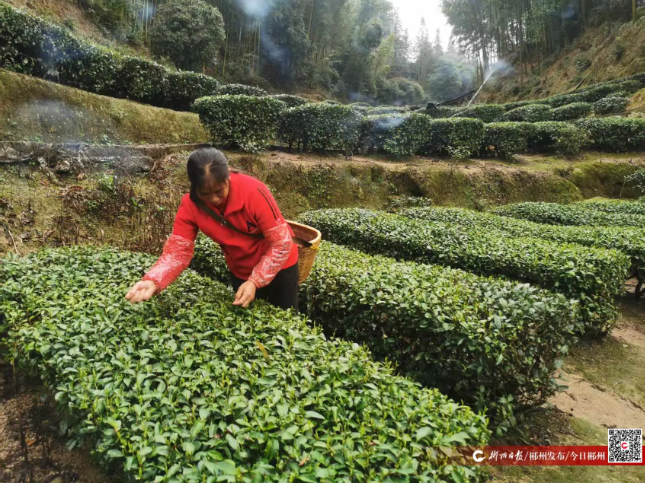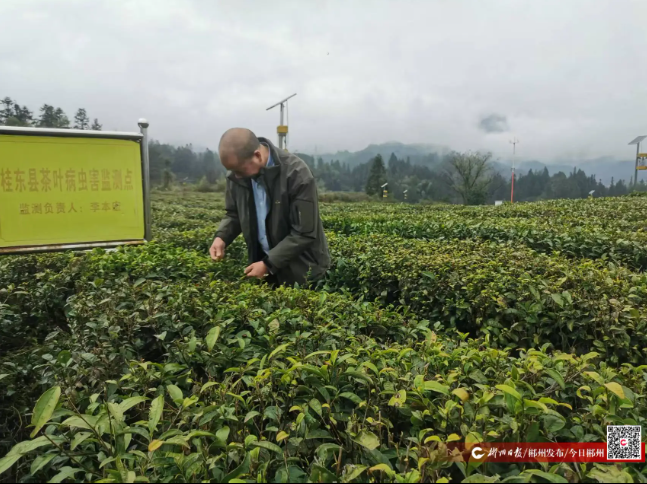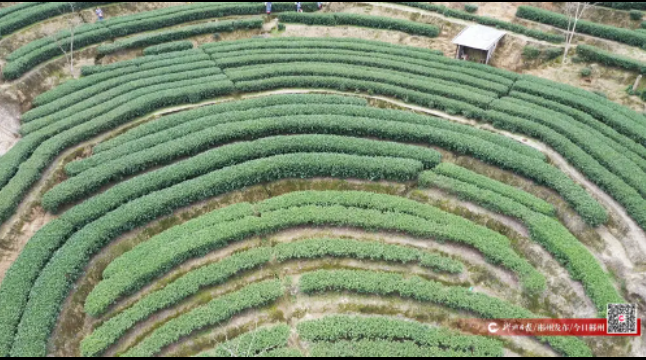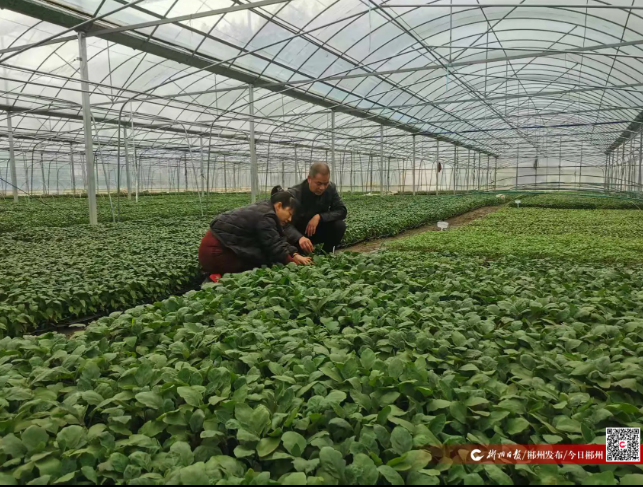Vegetable and tea industries promote rural revitalization in Guidong county
2025-04-05
It’s time to pick spring tea leaves.

A 53-year-old villager, who was picking tea leaves, said that she has been picking tea for three days, and she could pick four or five kg every day, with an income of eight to nine hundred yuan.
Tea and vegetable industries bring wealth to villagers in Guidong county.
Relying on its unique natural ecological advantages, the county government has developed the tea and vegetable industries to consolidate poverty alleviation achievements and promote rural revitalization.
Tea industry
Picking tea leaves, selling tea leaves and making tea are daily lives of villagers in Qiaotou village.

Qiaotou Tea Market has been open for three days.
Yang Chongbao, a 70-year-old villager from Shangyi village, earned over 500 yuan from selling fresh tea leaves.
Unlike Yang Chongbao’s tea garden, Li Benhong, a resident of Hongqiao Community, has few tea shoots in his tea garden in Mapingshan. “The tea is grown in an ecological way, so it’s expected that the tea leaves can be picked one week later,” said Li Benhong.
Li Benhong is a representative inheritor of Lilo tea making technique in Guidong County.
He founded a cooperative in Guidong County. In 2024, the cooperative’s ecological tea planting area exceeded 2,000 mu (133.33 hectares), and processed more than 20 tons of Yunwu tea, which generated sales of over 8 million yuan.
Qiaotou tea has excellent quality, and many tea merchants from other places come here for its reputation. A tea merchant from Gaoping town, Suichuan county of Chenzhou city, comes to Qiaotou every year to purchase tea. He purchased over 500 kg of tea leaves in 2024.
Qiaotou Township has listed the tea industry as the “No.1 Project” for rural revitalization.
Currently, the township has cultivated 6 tea processing enterprises, developed 61 tea processing households, and attracted more than 2,700 farmers to plant tea trees. The annual output of dry tea is over 750,000 kilograms, and the comprehensive output value reaches 160 million yuan.
The local government of Guidong county has vigorously promoted the tea industrialization business model that combines companies (cooperatives, bases with farmers, strengthened the production area, optimized brands, and fostered two tea professional towns.
It has built a Lilo tea sightseeing park and a tea corridor, as well as four standardized demonstration tea gardens.
At present, the tea planting area in the county is 150,000 mu (10,000 hectares), and there are 11 large-scale tea processing enterprises, including 3 leading enterprises at or above the city level, 2 provincial demonstration cooperatives, and 3 municipal demonstration cooperatives.

The tea production output value is 410 million yuan and the processing output value is 321 million yuan.
Vegetable industry
At around 4:00 p.m., villagers in Xinqiao village were busy packing vegetables at a vegetable base of Xinrong Ecological Agriculture Company.
In a vegetable greenhouse, the seedlings of early chili peppers are growing well, while the seeds of late chili peppers are still being sown.
“Our two vegetable seedling greenhouses have 20 million chili seedlings alone, which can not only meet our company’s planting needs, but also provide seedlings for local villagers,” said Xiang Ruihong, the head of Xinrong Ecological Agriculture.
“Thanks to the good natural ecology and climate, as well as the big temperature difference between day and night, the vegetables we grow have high quality.”
Xiang Ruihong has been growing vegetables for 26 years, and he said that vegetables will be planted in suitable places.
Nine years ago, Xiang Ruihong came from his hometown of Hengyang to Guidong to transfer land and grow vegetables, including chili peppers, parsley, and cabbage.
In 2024, Xinrong Ecological Agriculture planted 1,815 mu (121 hectares) of alpine vegetables, established 9 vegetable bases, and sold 2.73 million kilograms of alpine vegetables.
The high-altitude vegetables were sold to Shenzhen and other places, and the demand for these vegetables even exceeded supply. The company offered jobs for more than 200 villagers.

This fully showcases Guidong county’s efforts to promote rural revitalization and help villagers increase income through the vegetable industry.
The local government of Guidong county has attached great importance to the development of the alpine vegetable industry, formed major vegetable production areas in Oujiang, Zhaiqian, Datang and other places, and developed the characteristic alpine vegetable industry with a pattern in which large growers plant vegetables based on sales orders and small growers depend on large growers.
At present, the planting area of alpine vegetables in the county exceeds 51,200 mu (3,413.33 hectares), with an annual vegetable output of 126,000 tons and an output value of 224 million yuan.
This has driven more than 3,000 local residents to find employment at their doorstep, and the average household income has increased by more than 3,000 yuan.
Chinese source: czxww




